Best lightweight sleeping bag 2025: pack light, sleep right
Float like a butterfly, sleep like a dream with the best lightweight sleeping bags

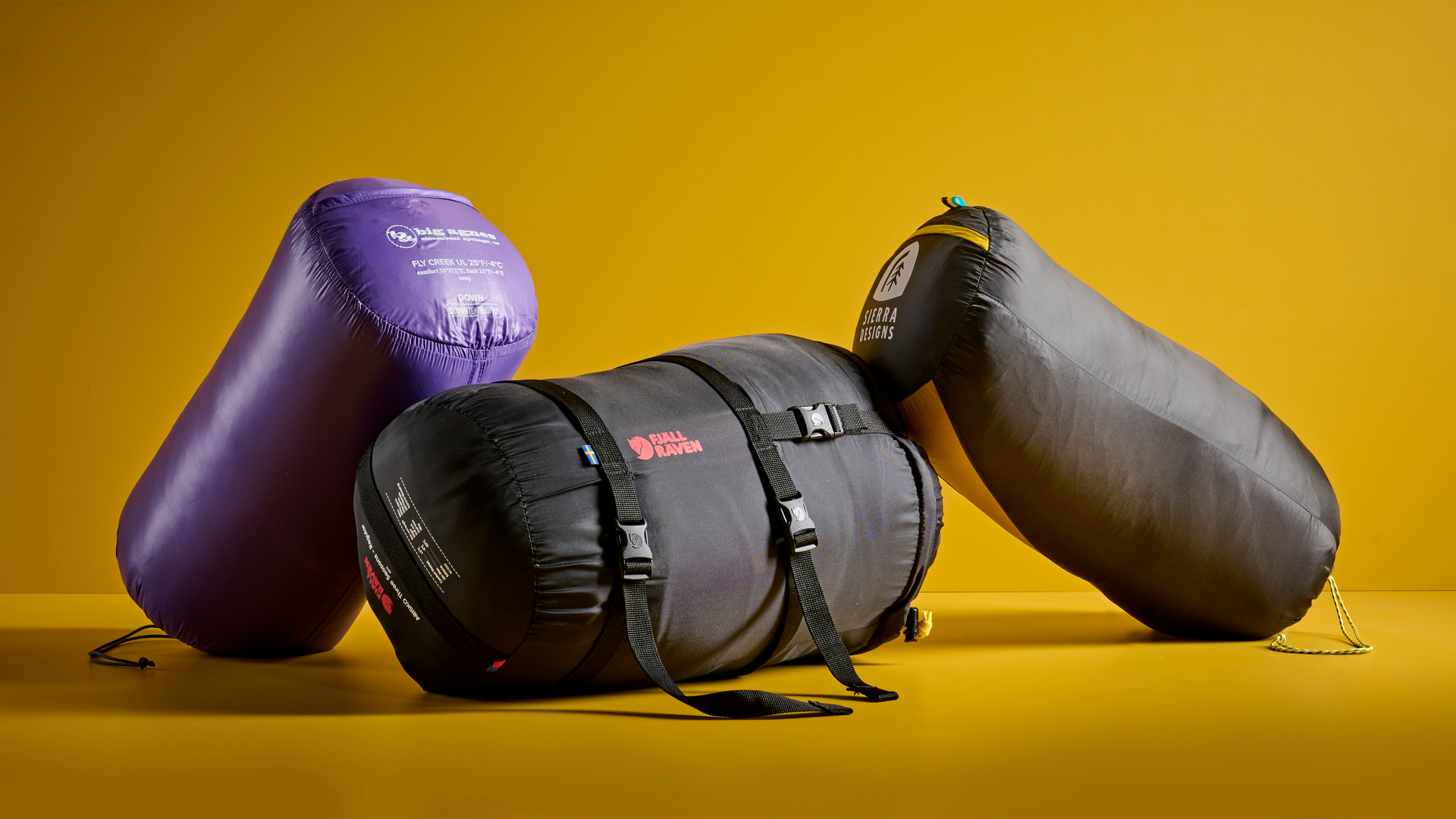
Looking to lighten your load on your outdoor adventures? Getting one of the best lightweight sleeping bags can significantly reduce the weight of your backpack. We've tested a plethora of options perfect for backpacking, bikepacking, and fastpacking, ensuring they're light enough to carry for hours without weighing you down.
But before you dive into the world of lightweight slumber, here are some tips for buying sleeping bags online. First, consider the temperature rating to ensure you're cosy in all conditions. Then, check the weight and packed size to make sure it fits your pack without adding unnecessary bulk. Don't forget about comfort features like insulation type and shape for a snug fit.
The feather-light bags below are designed for spring to autumn adventures. For warmer options, check out T3's best sleeping bag guide. For added comfort, pair your bag with one of the best camping mats. Need shelter? Check out our best backpacking tent guide for equally compact options.
Our top choice for the best lightweight sleeping bag is the Rab Neutrino 400. It's warm, packs down small, and feels like sleeping on your double mattress at home (almost). If you need something even lighter, check out the Mythic Ultra 180, also from Rab. If you're on a budget, Decathlon's Forclaz Trek MT900 is the bag we'd recommend.
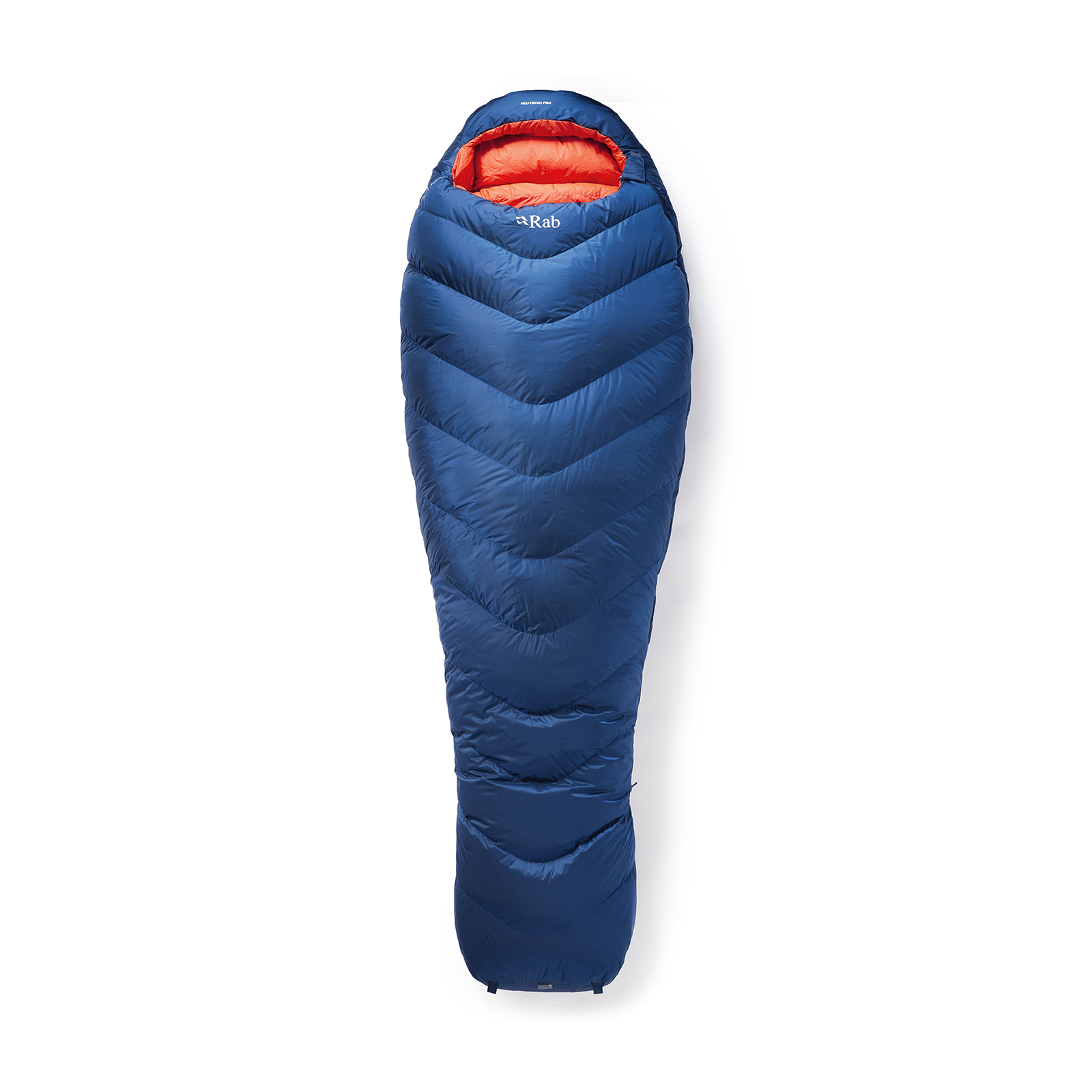
The Rab Neutrino 400's near-perfect weight-to-warmth ratio is achieved by ingenious design trickery and solid quality filling – 800FP European Goose Down with Nikwax Fluorocarbon-Free Hydrophobic Finish. For an all-rounder bag that won't weigh you down but will handle cold reasonably well, this is a winner.
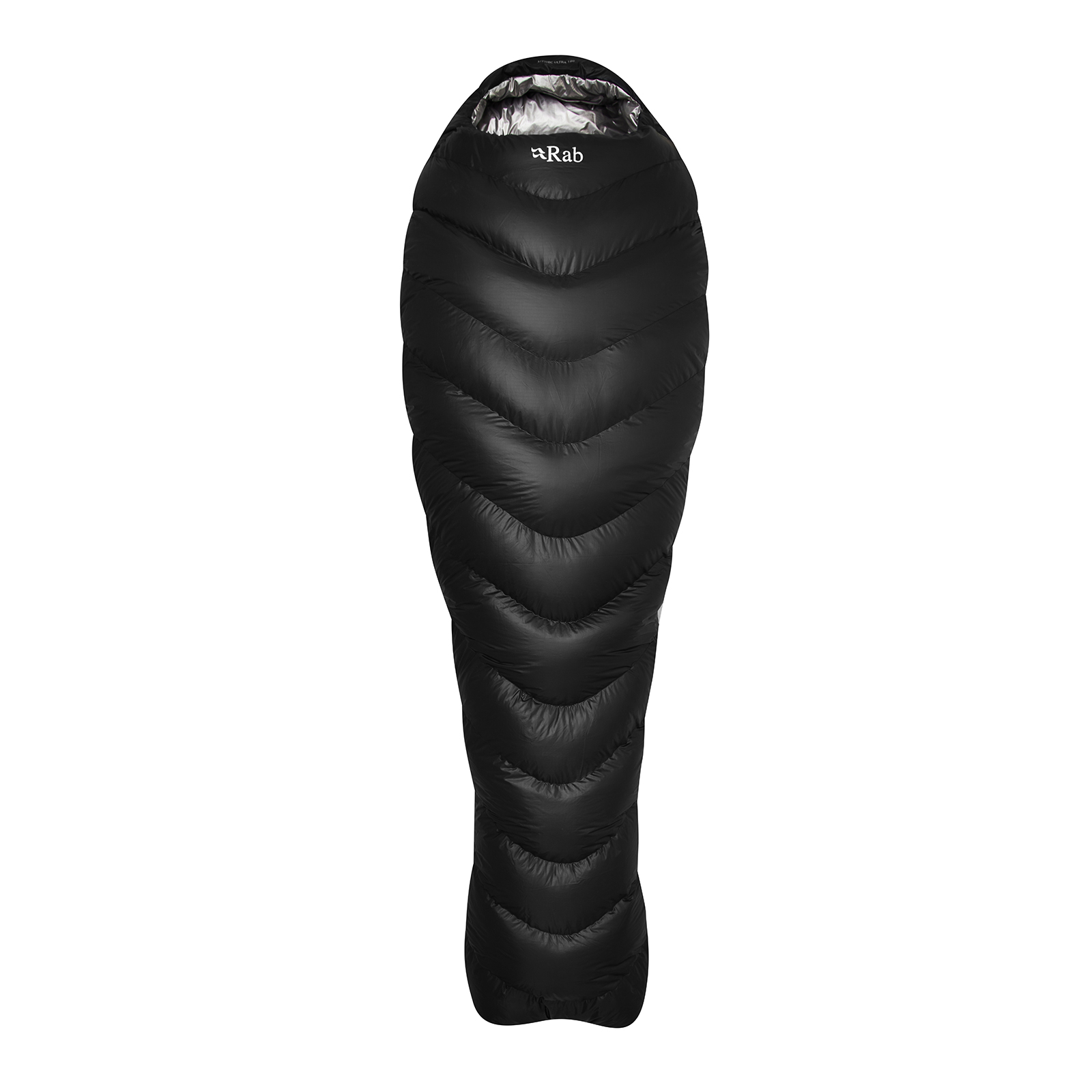
Rab's Mythic Ultra 180, the lightest in the range, clocks in at 400g. It's still limit-rated to zero degrees, too, which means it'll handle a wide range of outdoor excitement and still keep you happy. It's also super high-tech and packs down incredibly small. If you can afford it, it's a superb choice!
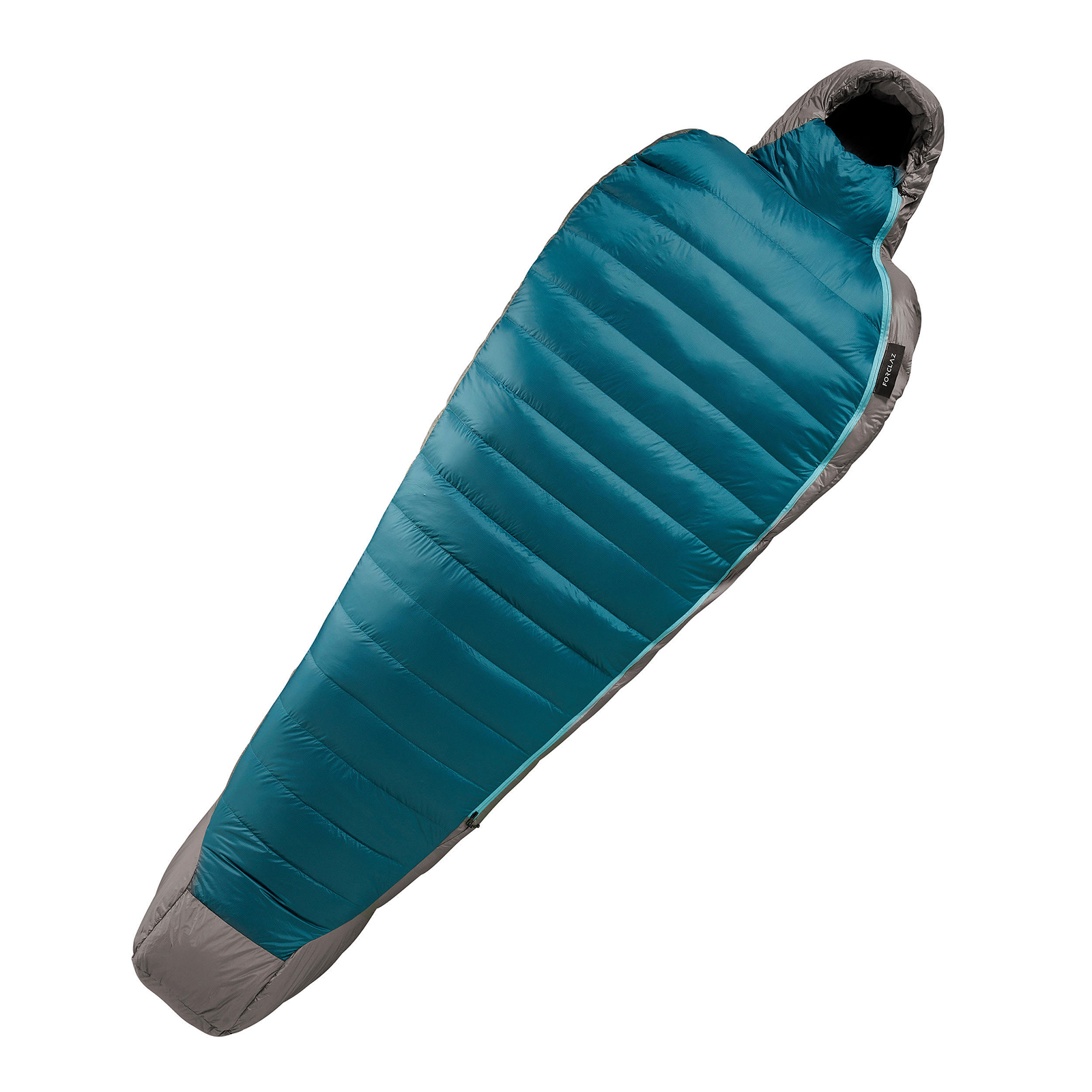
If you're on a tight budget, check out the Forclaz MT900. The folk at Decathlon have been busy here, knocking out a 700g mummy sleeping bag for a fraction of the price of the top performers in this class. There's also a full-length zip, making this a very flexible late spring/summer/autumn bag, indeed.
Best lightweight sleeping bags to buy right now
Best overall
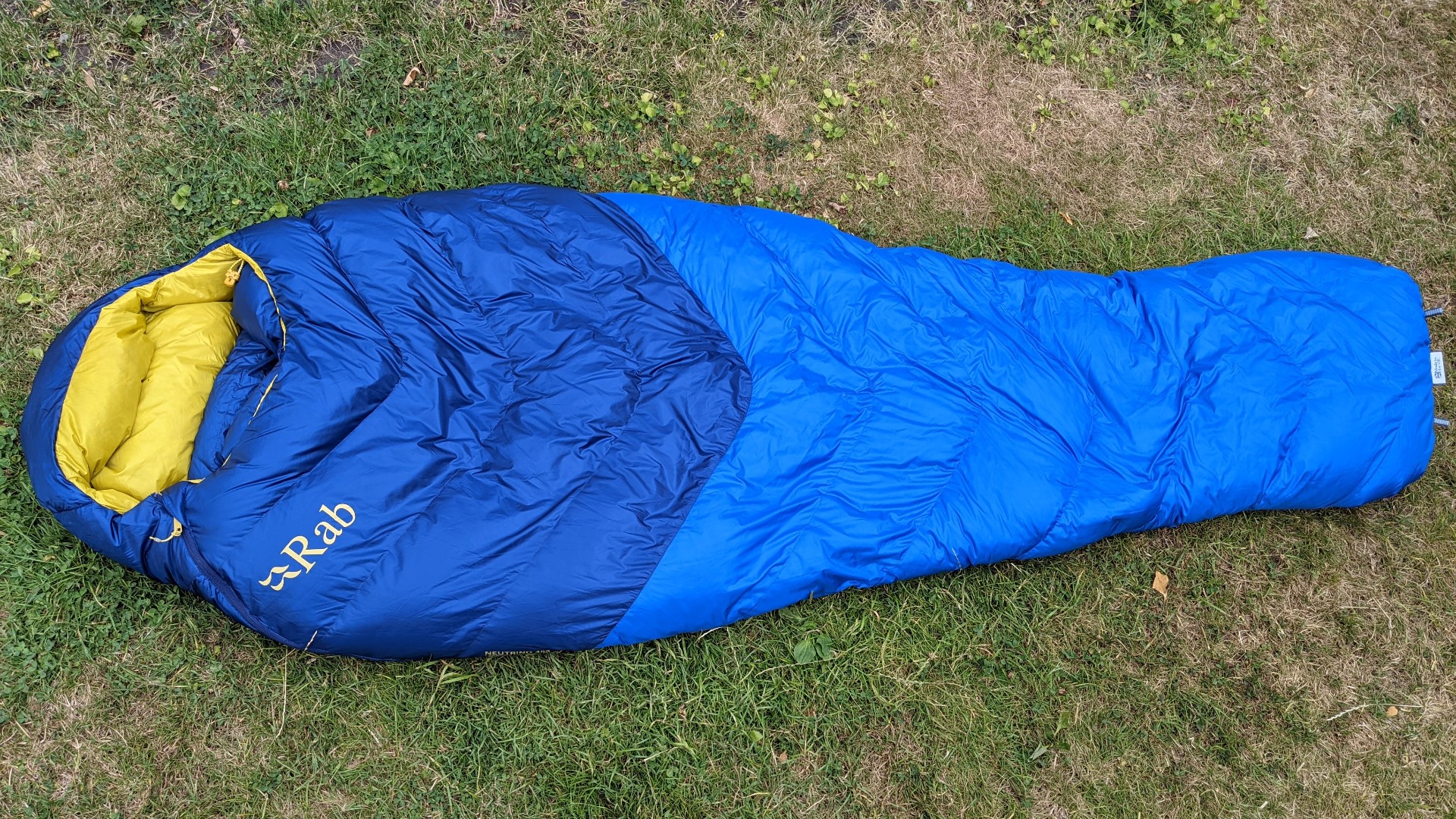
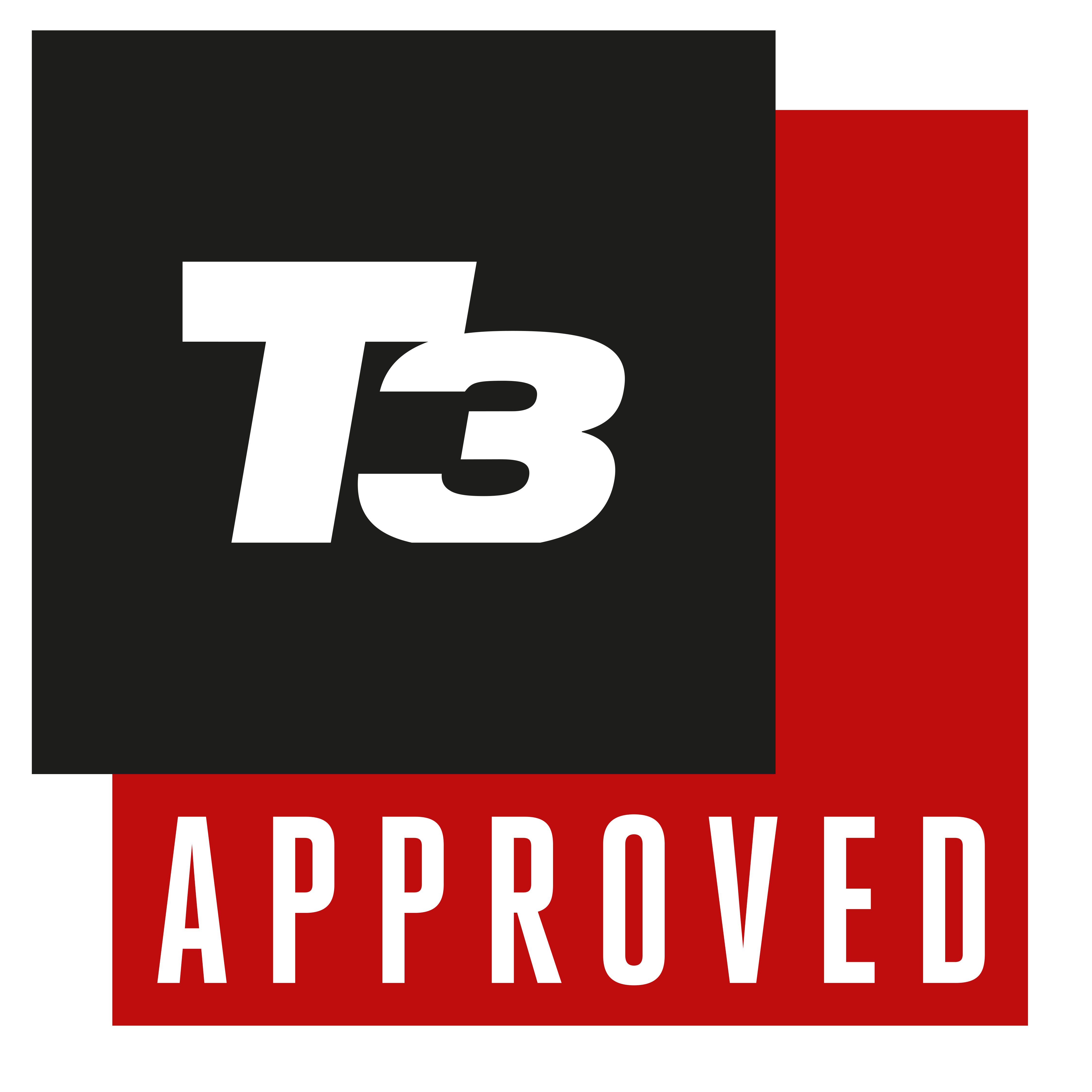
Specifications
Reasons to buy
Reasons to avoid
The Rab Neutrino 400 Sleeping Bag weighs 775g (27oz), making it a low-midweight option. Comfort-rated to minus one degree Celsius, with an 'edge of comfort' at -7C (20F), it’s ideal for year-round use.
The 800 Fill Power Responsible Down Standard (RDS) Certified Goose Down, treated with Nikwax fluorocarbon-free hydrophobic finish, enhances its water resistance, making it suitable for damp conditions.
The outer shell is made of 20D Pertex Quantum 100% recycled nylon ripstop with a fluorocarbon-free DWR coating, while the lining is 20D Recycled Nylon – a lightweight yet durable construction.
The chevron baffle design minimises down migration and optimises core warmth, aided by box wall construction with differential cut. Additional features include a neck baffle and bungee hood to trap heat and a 3/4-length zip to maintain warmth.
In performance, the Rab Neutrino 400 excels, offering ample warmth on chilly nights, making it perfect for bike packers, alpine hikers, and overnight adventurers. The anti-snag YKK zip and small phone/battery pocket add to its practicality. The 800FP down lofts well, even after compression, contributing to its luxurious feel.
Read our full Rab Neutrino 400 sleeping bag review.
Best premium
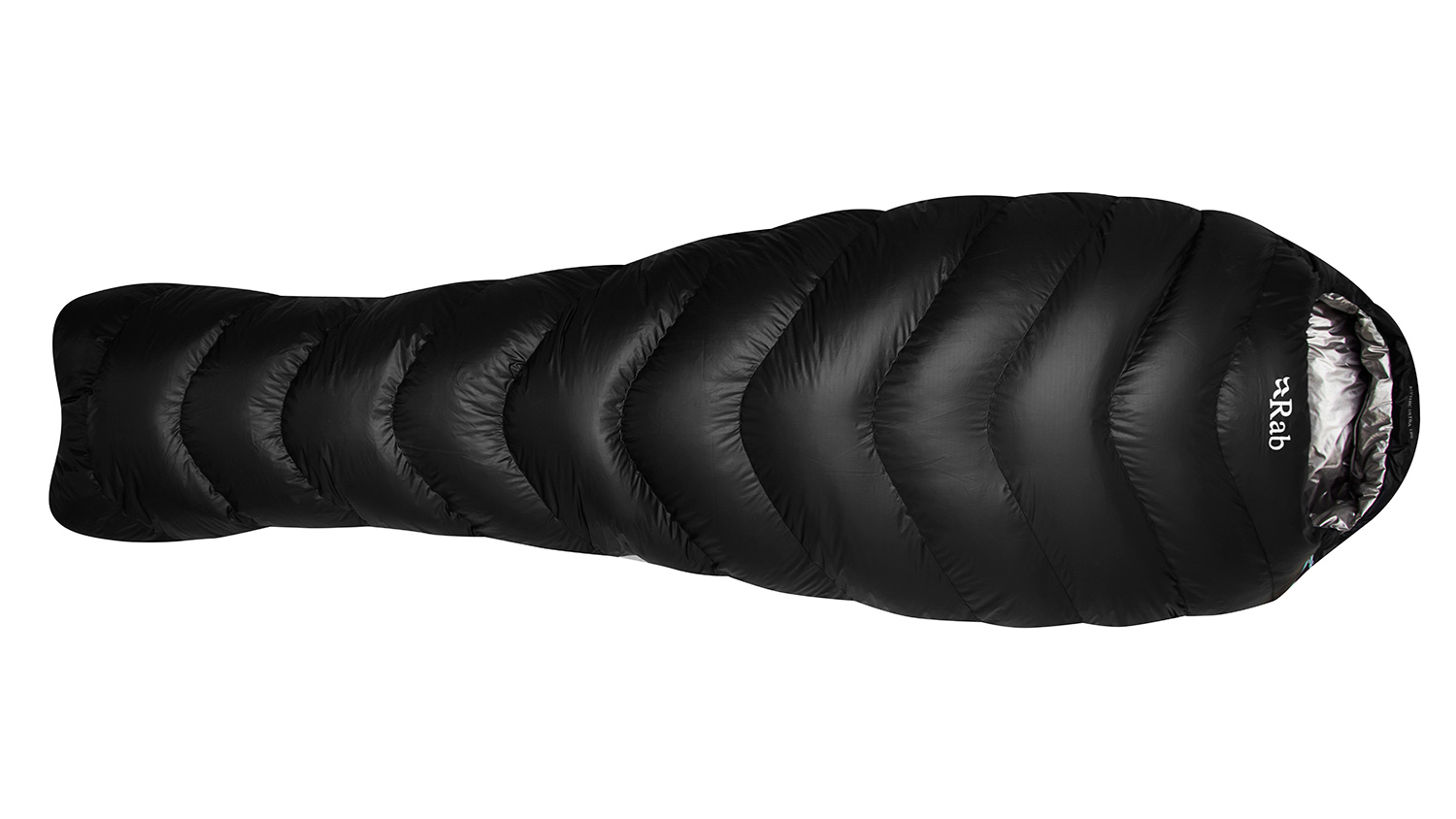

2. Rab Mythic Ultra 180
Specifications
Reasons to buy
Reasons to avoid
The Rab Mythic Ultra 180 Sleeping Bag has an ultralight design and advanced thermal efficiency, making it a top choice for fastpackers and alpine adventurers.
Weighing just 440g (15.5 oz), it offers a remarkable weight-to-warmth ratio thanks to its 900-fill power goose down and innovative Thermo Ionic Lining Technology (TILT). This lining reflects body heat, enhancing warmth by up to 30%, which allows the bag to maintain a comfort limit of around 0°C (32°F).
Constructed from superlight 7D ripstop nylon, the Mythic Ultra 180 combines durability with minimal weight. The hydrophobic down, treated with Nikwax, ensures the bag retains its insulating properties even in damp conditions, a crucial feature for mountain environments.
Despite its minimalism, the bag includes a half-length zip for weight reduction, though this may limit ventilation on warmer nights. Users may also find the fit snug, particularly tall people.
The Rab Mythic Ultra 180 excels at delivering ultralight warmth and packability, making it a superb choice for those who prioritise weight without compromising on thermal performance.
Best budget
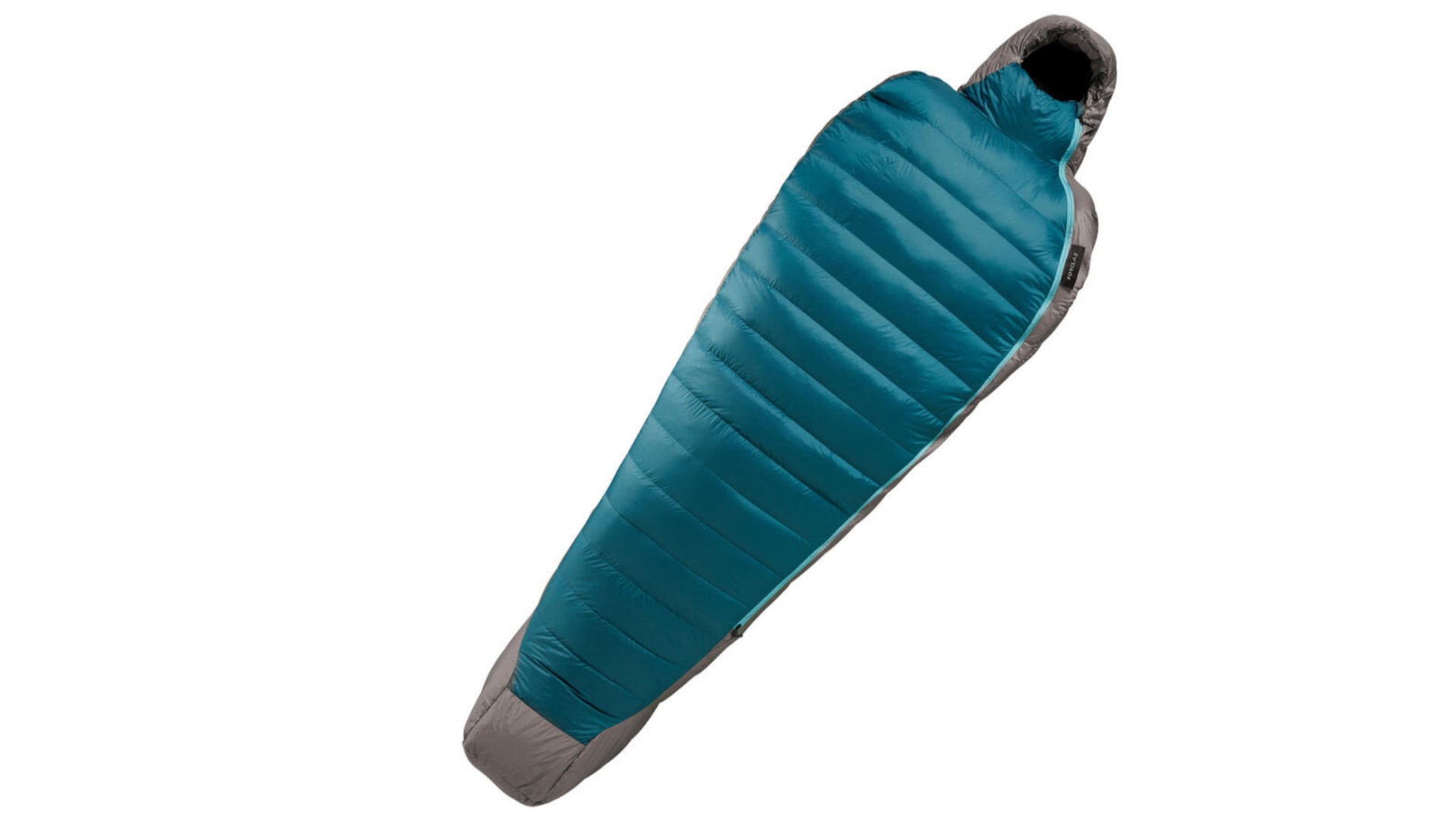

3. Decathlon Forclaz Trek MT900
Specifications
Reasons to buy
Reasons to avoid
The Decathlon Forclaz Trek MT900 is a budget-friendly, lightweight sleeping bag option that weighs just under a kilo (large size) and offers a comfort temperature of 0°C (32°F) and a limit of -5°C (23°F), making it suitable for three-season use.
Filled with 90% RDS-certified duck down and 10% feathers, the MT900 provides excellent loft (800 CUIN) for optimal warmth-to-weight ratio. This fill is encased in a water-repellent polyamide shell, which helps keep moisture at bay, although it isn't fully waterproof.
The mummy shape and anatomical hood are designed to minimise dead space, enhancing thermal efficiency. The double-slider full-length zip allows for easy ventilation and temperature regulation, a crucial feature for maintaining comfort across varying conditions.
A versatile and cost-effective option for hikers and backpackers, the Forclaz Trek MT900 balances lightweight design, thermal efficiency, and affordability. An excellent choice for budget-conscious adventurers looking for reliable three-season performance.
Best for summer


Specifications
Reasons to buy
Reasons to avoid
The Grüezi Biopod DownWool Summer sleeping bag features a unique design and innovative materials. Shaped like a mummy, it offers a spacious hood to accommodate a pillow or soft clothing for added comfort. The double-zip system, forming a reverse J shape, allows for ventilation of the feet on warm nights while keeping the upper body warm. Bright white zippers and a conveniently placed pocket enhance usability.
Constructed from ultra-light 20-denier 380T nylon, the standout feature is its fill: a blend of 70% duck down and 30% wool from alpine sheep. This combination leverages the thermal properties of down and the moisture management of wool, avoiding the need for artificial water-repellent treatments.
Tested during an unseasonably cool English spring, the bag proved effective at its lower temperature limits, maintaining warmth even in challenging conditions. The J-shaped zip facilitated temperature regulation, and the bag's shape allowed for comfortable movement. Despite its spacious design, the bag compresses well for packing, making it ideal for hiking and backpacking.
The Grüezi Biopod DownWool Summer is a luxurious choice for those who camp in warmer weather or seek a specialised bag for summer adventures.
Read our full Gruezi Biopod DownWool Summer 185.
Best mid-range
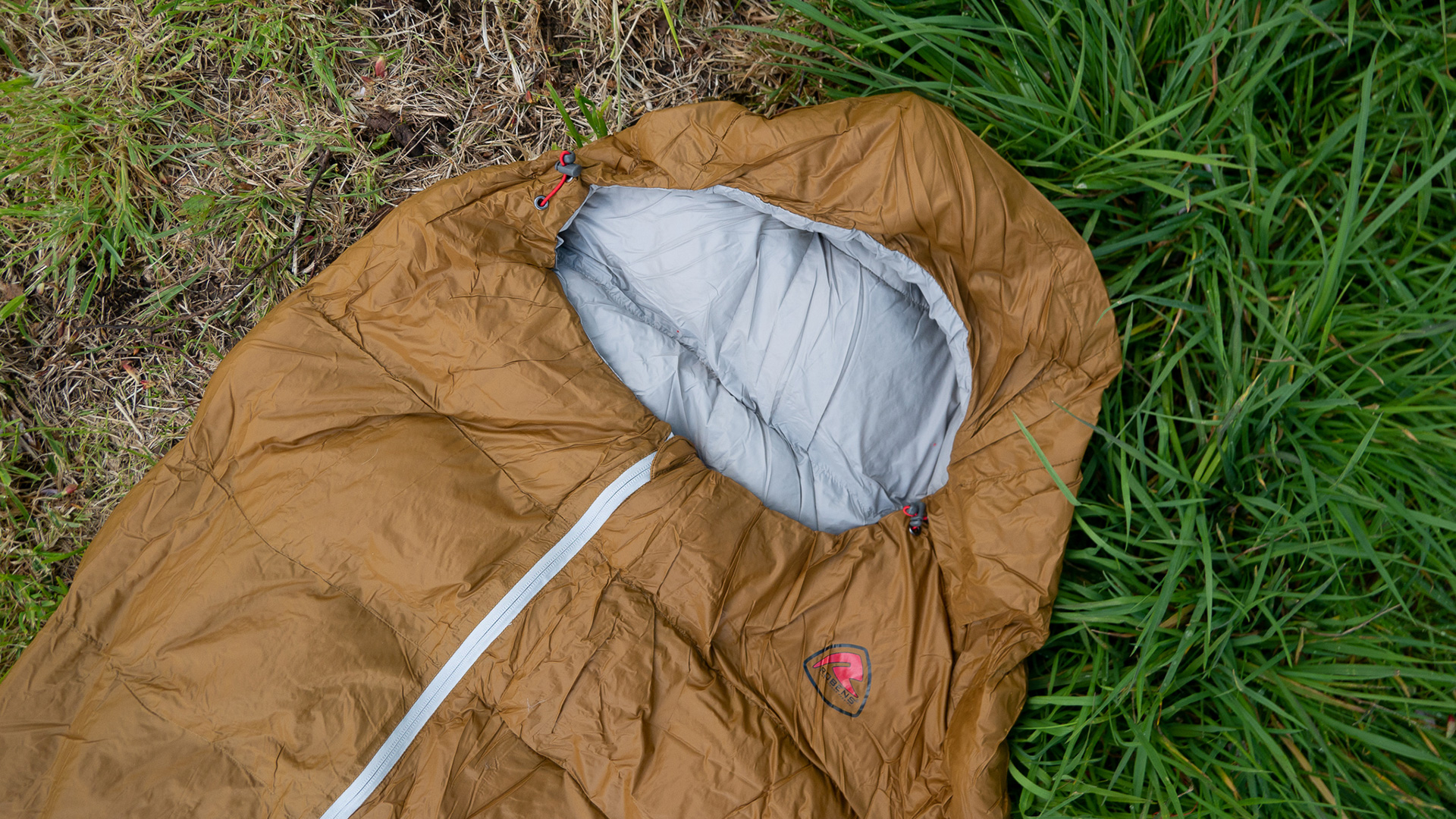

Specifications
Reasons to buy
Reasons to avoid
While we're not sold on the colour, the Robens Icefall Pro 300 offers some strong value for money in the lightweight sleeping bag arena, as well as being synthetic filled. This means it'll handle wet conditions much better than a down bag, still keeping you warm in soggier surroundings.
Designed for warmer weather camping only, this bag boasts plenty of handy design features, including a mummy shape and narrow foot box to keep heat trapped in around the legs, a generous length of 195cm, and a synthetic filling that effectively mimics the heating properties of down feathers. However, the standout is the central zip, which is intuitive and feels much easier to use than a traditional side positioning (one irritation is that the zip tends to catch on the surrounding fabric, so you'll need to be careful when opening and closing it).
Read our full Robens Icefall Pro 300 sleeping bag review.
Best zipless
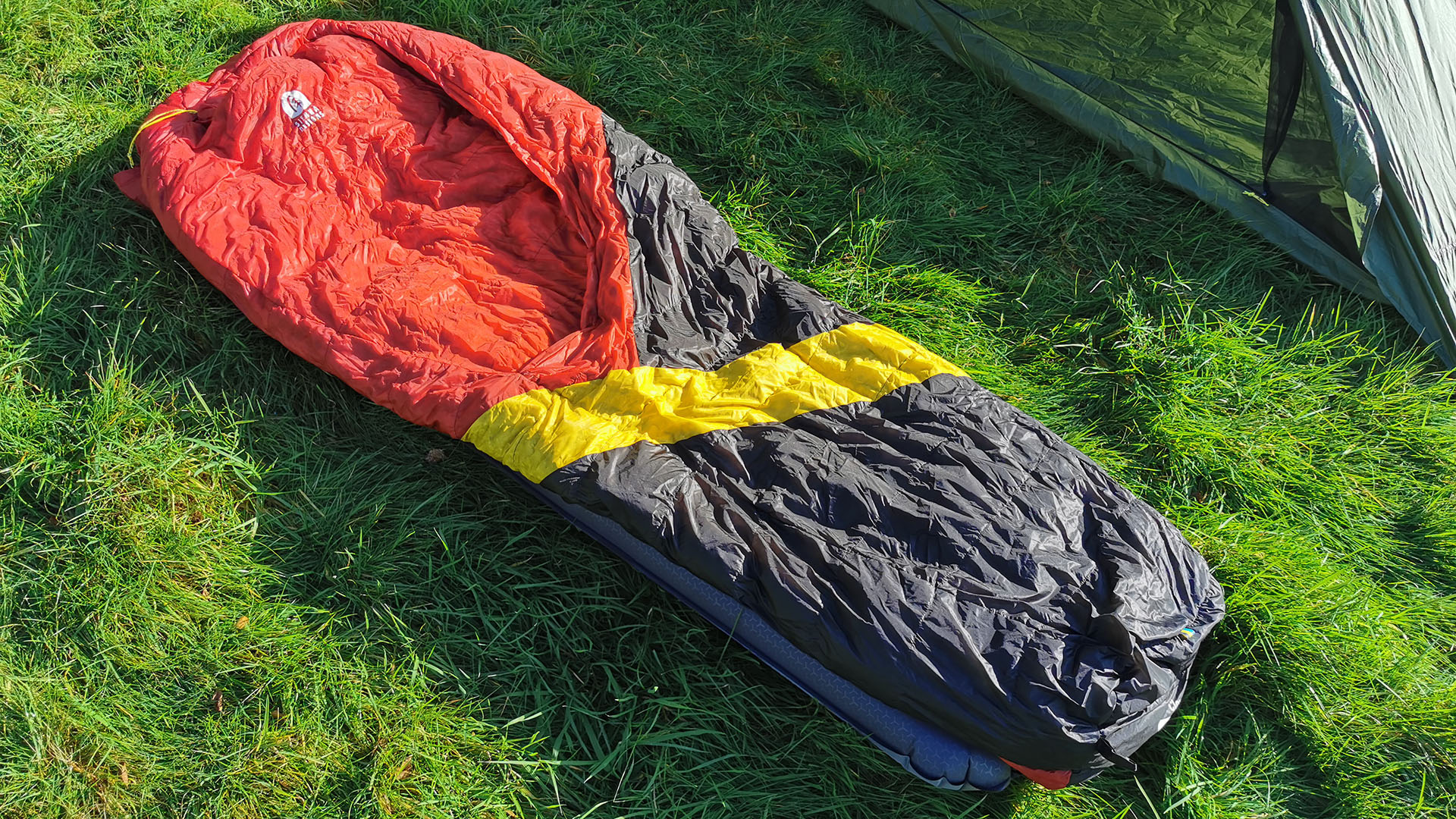
Specifications
Reasons to buy
Reasons to avoid
The Sierra Designs Cloud 800 20 adopts an undeniably innovative design approach. The use of zoned down fill, and the lack of a zipper are both good weight savers, which means that the Cloud can utilise a roomier, more comfort-focused fit without adding excess weight or bulk to the overall package.
We also like the added ventilation options, which add versatility for use across a range of different seasons and temperatures. Some will find it an absolute dream to sleep in. Others might not get on with its unusual design so well, though, and we reckon it’ll prove to be a bit of a Marmite product – you’ll either love it or hate it.
Having said that, the Cloud 800 is well worth a try if you find conventional zippered mummy bags restrictive but don’t want to carry the added weight that usually comes with more generously proportioned sleeping bags. On the other hand, you could save even more weight and bulk by opting for a backpacking quilt – like Sierra’s own Nitro 800 20.
Read our full Sierra Designs Cloud 800 20 review.
Best for warmth
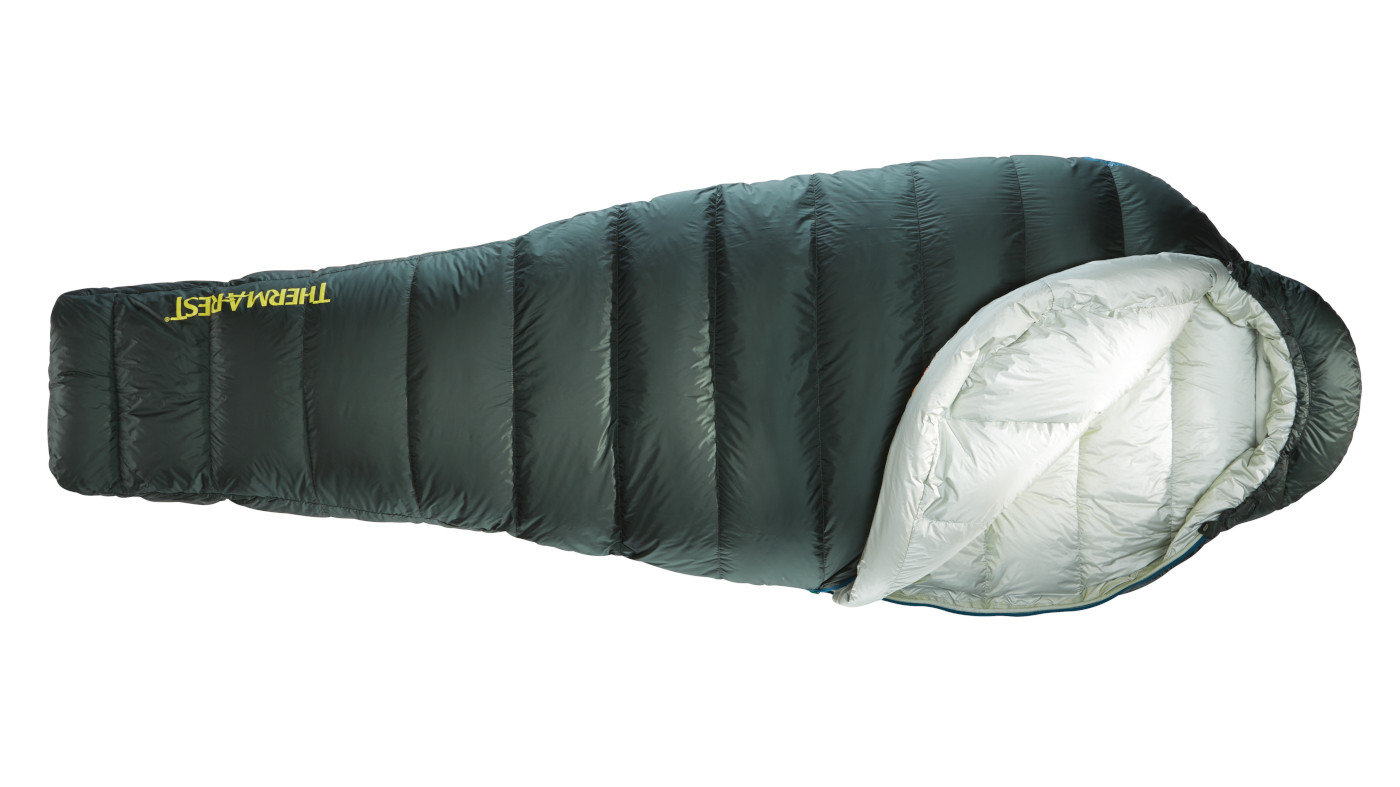

7. Thermarest Hyperion 32 UL Down
Specifications
Reasons to buy
Reasons to avoid
The Thermarest Hyperion 32UL boasts an enormous 900 fill GooseNikwax Hydrophobic Down to keep you warm down to a comfort limit of zero degrees, which is impressive considering how light this is. It also packs down to around the size of a 1L water bottle. The Nikwax treatment on the down itself staves off some of the worst effects of damp, with the treatment staying drier and, according to Nikwax, maintaining loft 60 times longer than untreated down.
A thermally-efficient box baffled construction and zoned fill (70% on the top and sides with 30% on the back) keeps the insulation around your core for maximum warmth and minimum weight, and finally the down filling is Responsible Down Standard Certified. It's not cheap, but it is one of the best lightweight sleeping bags you can buy, and after a long day carrying it, you won’t regret spending the pounds (or dollars) to save those grams.
Best 3-season
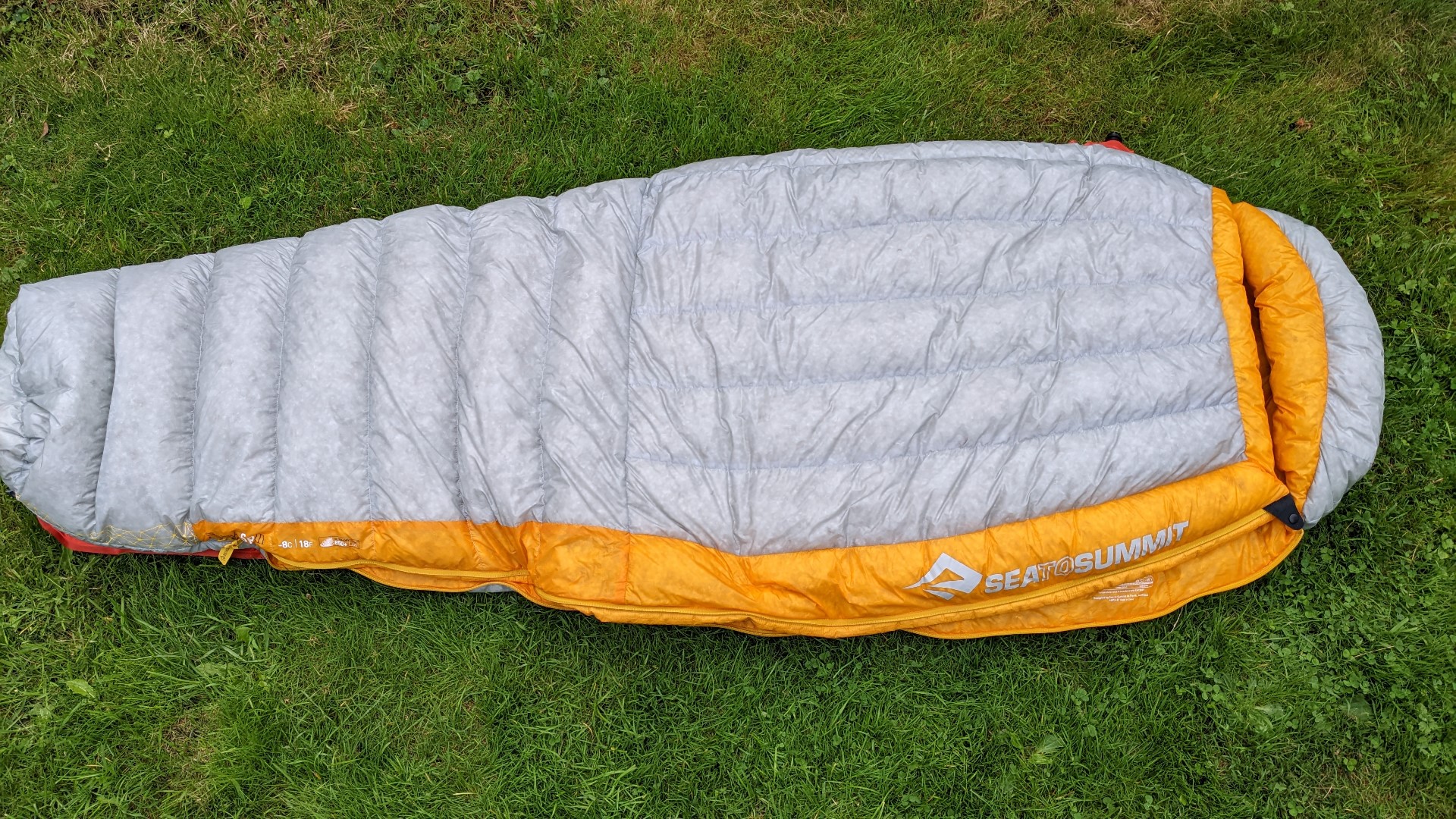
Specifications
Reasons to buy
Reasons to avoid
The Sea to Summit Spark SpIII Sleeping Bag lofts beautifully and luxuriously in double-quick time, and we had no issues sleeping happily in low-single-figure temps. The proper zip means that venting is easy, and essentially the whole experience is the same as a much heavier ‘normal’ sleeping bag, just with half the weight to tote around.
That weight saving is really the heart and soul here - sure, there are warmer bags, and they weigh at least double this (and plenty more). However, if you’re carrying the Spark SpIII Sleeping Bag over long distances, or engaged in long, off-season days out that might culminate in a hut or bothy, that lack of weight will power you all day long, and you’ll still get a comfy bed at the end of it.
The Sea to Summit Spark SpIII Sleeping Bag might be complete overkill for car campers and occasional outdoors venturers, but if you’re in the market for a technical, easily-carried but warm sleeping bag, this is absolutely one to take a look at - just don’t let the crampons get near it.
Read our full Sea to Summit Spark SpIII Sleeping Bag review.
Best for bikepacking
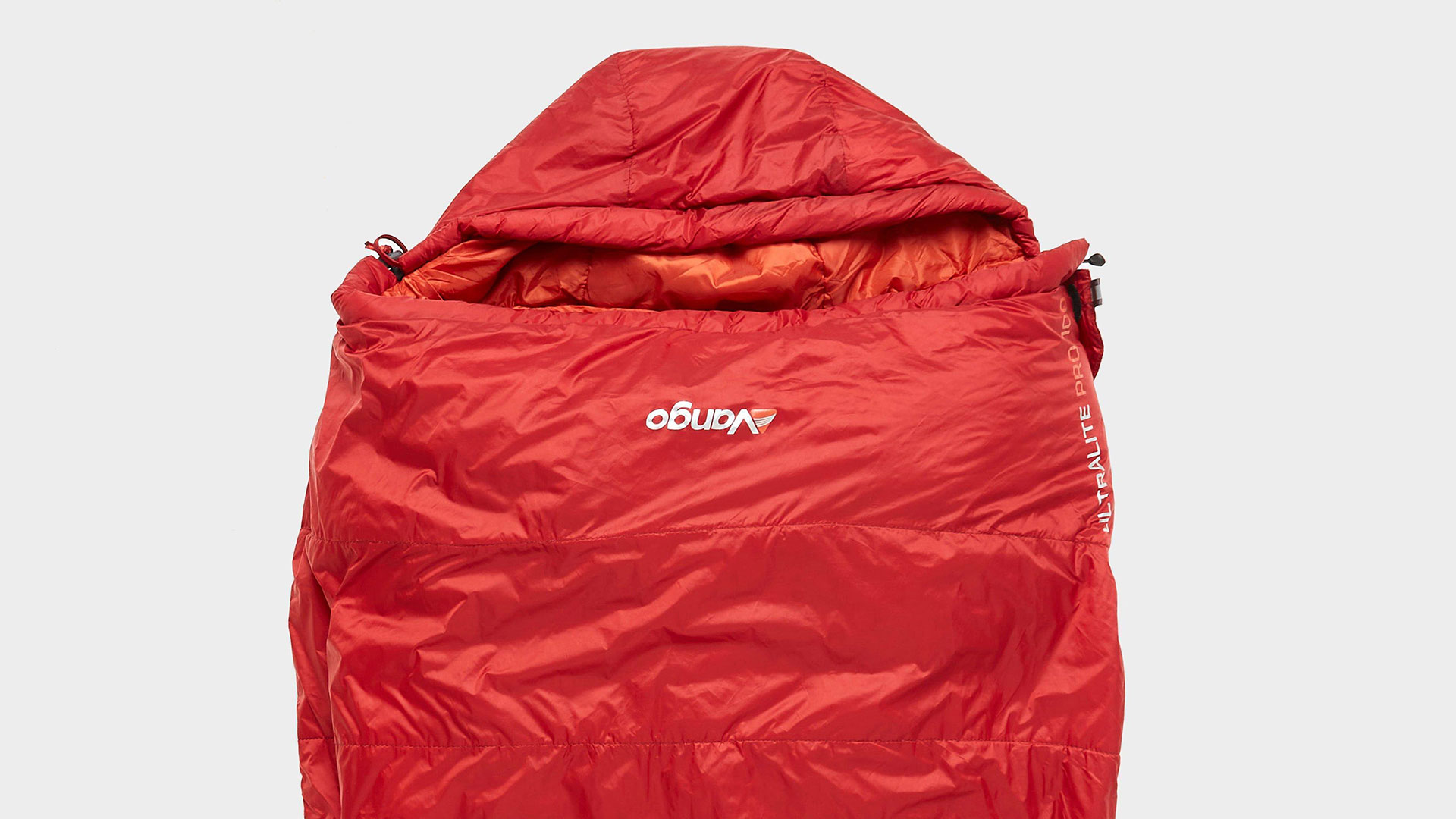

9. Vango Ultralite Pro 100 Sleeping Bag
Specifications
Reasons to buy
Reasons to avoid
Whether you take into account the budget price tag or you don't, the Vango Ultralite Pro 100 is an impressive sleeping bag. The Thermal Reverb system of reflective aluminised lining is designed to bounce your own body heat back to you, and the Polair Active outer fabric remains soft and warm to the touch. At 900g, it’s not feather-lite, but it’s still compact and comfortable to carry when backpacking and hiking. Better still, it comes recommended by both the DofE and The Scout Association and has an extremely reasonable price tag too.
Reviewer panel

Matt looks after all the outdoor guides on T3 (well, most). He loves camping and sleeping on ground so cold it freezes the life out of him. He's tested many sleeping bags before and curates this list for T3.
Mark is a seasoned outdoor expert who tested some of the sleeping bags featured in this guide. He's a keen mountaneer and hiker, and often can be found outdoors testing kit.
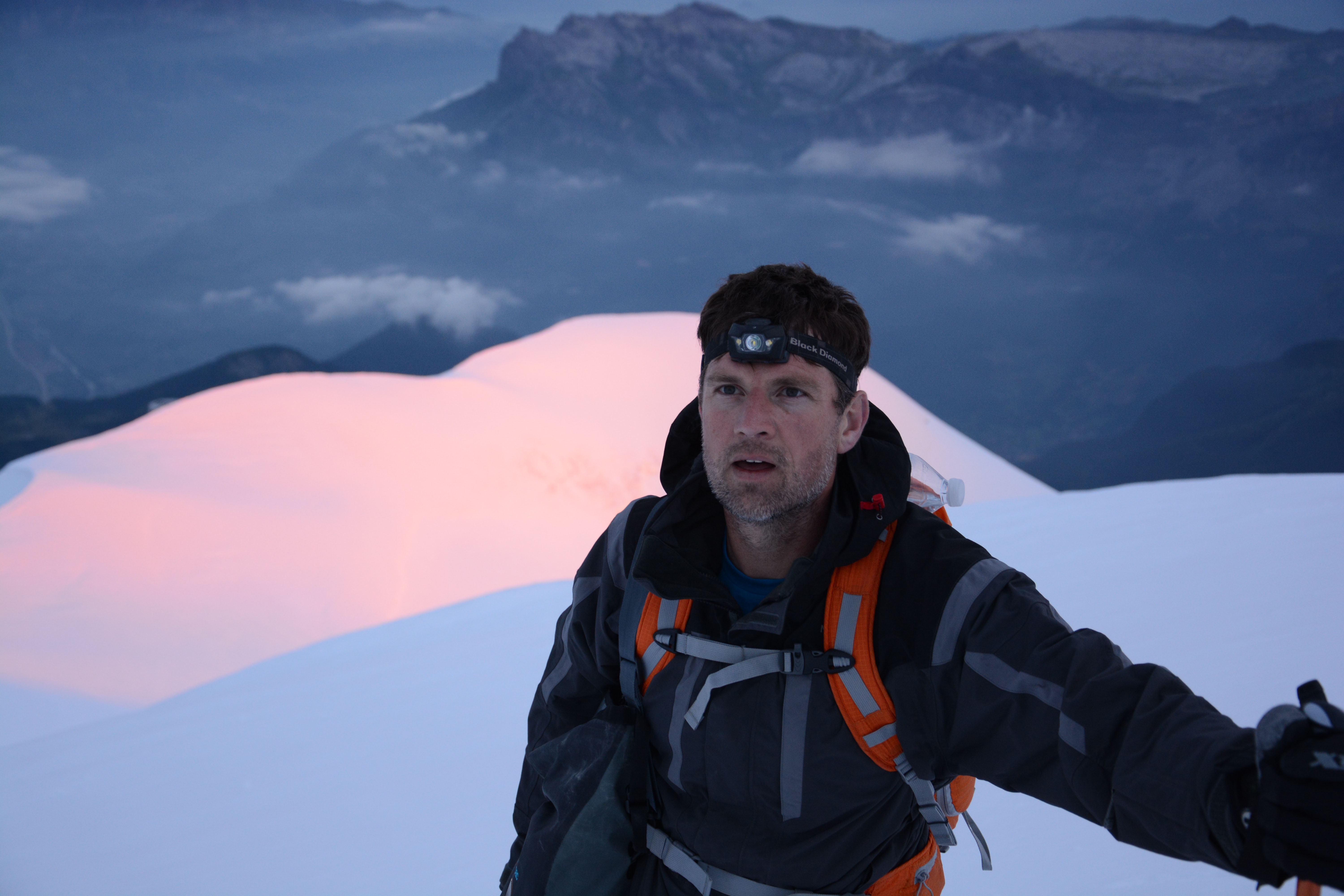
Pat is an experienced outdoor expert, published author and a cornerstone of outdoor gear testing on T3. He's reviewed hundreds of products in the past couple of decades. Matt and the T3 team knows that at this point Pat can feel if an outdoor gear is good or not.
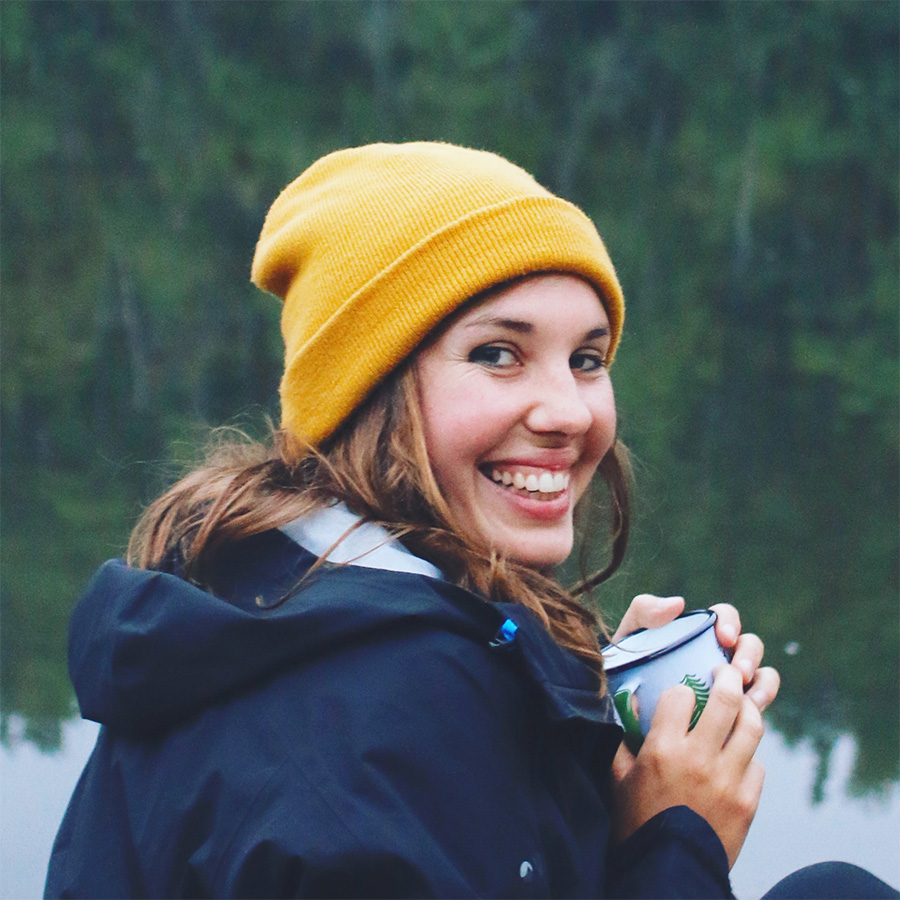
Sian used to contribute to T3's wealth of outdoor content in the past and reviewed many of the gear featured in various guides, including this lightweight sleeping bag roundup. She's an experienced outdoor person and a very good writer.
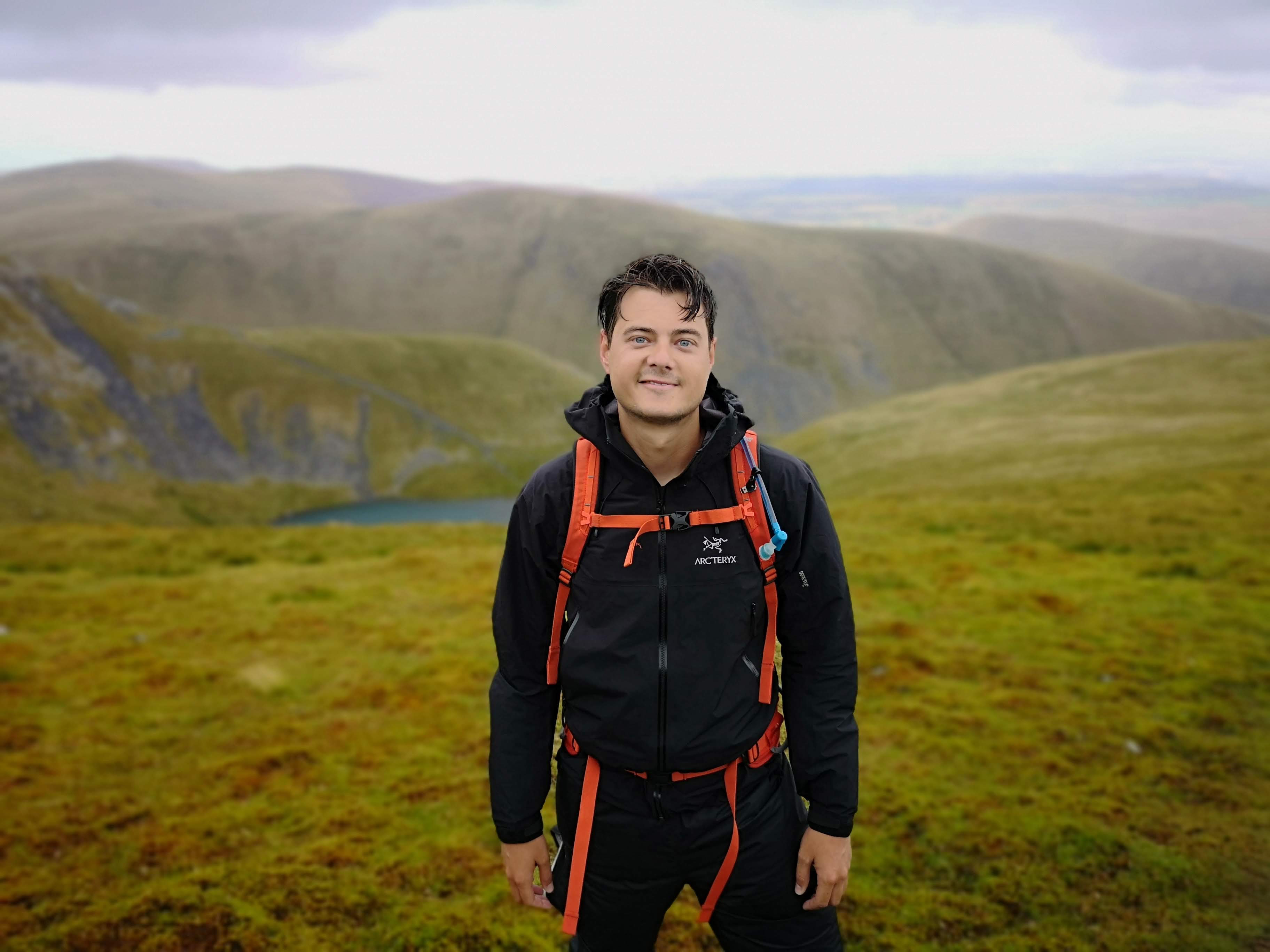
Matthew is one of the most experienced campers on the team. He's been testing kit in the field for a decade and is an expert in long-distance backpacking, wild camping and climbing mountains.
How we test the best lightweight sleeping bags
To put together this ranking, wherever possible, we call the lightweight sleeping bag in and test it out overnight to see how it performs. We'll look at how effectively it keeps us warm, but also how functional it is as a design – is it ergonomically shaped? Can we get in and out of it easily, and does it pack up without too much hassle? Are there any extra design features, like tech pockets, worth considering? Does it feel well-made and robust?
Because this particular guide is all about small and light bags, we'll look at the bag's specs, its weight compared to its packed size, and how that compares to competitors' efforts. We'll also factor in its cost before deciding where the bag should sit in the ranking.
Info from the brand about how the sleeping bag has been produced and any notable technologies also feed into our decision-making, along with our knowledge about the brand, its reputation, and our experience with its products so far. Finally, we look at what other reviewers have said to make sure we're not missing anything big.
In the cases where we haven't been able to get hold of a sleeping bag but feel it's worthy of inclusion, we research what other customers and reviewers have said and combine that with our knowledge of the market to put together an informed blurb for you to base your decision off. Find out more about how we test at T3 here.
How to choose the best lightweight sleeping bag for you
There are a few things to know before you make your purchase. Sleeping bags usually state an EN rating, which is the European standard EN13537. EN13537 uses a thermal manikin test that produces four temperature results: upper limit, comfort, lower limit/transition, and extreme.
Of these four ratings, ’comfort’ and ’lower limit/transition’ are the most helpful and are what most people look at when buying a sleeping bag. It's also worth bearing in mind that the 'extreme' ratings are exactly that - they're right on the edge where the bag stops working, and you go into hypothermia - not a fun place to be.
If you get colder faster than the average person, look at sleeping bags with a higher lower limit. Remember, too, that real-world variables can impact a sleeping bag's performance, so these ranges are just a guideline.
Even in the summer heat, temperatures can drop at night, and even more so as you climb above sea level (approximately 1 degree less for every 100m), so single-figure EN ratings are a good choice even for a light summer sleeping bag.
Unfortunately, while technological advancements mean that most hardware is getting lighter and lighter, there are still limits to what you can do, and nowhere are these more acute than in sleeping bags. Lighter materials shave off those grams but lose lots of durability.
Elsewhere, DWR coatings and treatments might add vital damp-proofing but also add a few grams themselves—there's literally no escape from the scales.
Downfilling offers the lightest and warmest potential but is useless in damp conditions. Artificial fibres tend to be heavier and bulkier but much happier in soggy conditions.
FAQ
Is it OK to store sleeping bags in their stuff sacks?
Yes, it's generally okay to store sleeping bags in their stuff sacks for short periods of time, such as when traveling or camping.
However, for long-term storage, it's better to hang or store sleeping bags loosely in a cool, dry place to maintain their loft and insulation properties.
Stuffing them tightly in their sacks for extended periods can compress the insulation, reducing their effectiveness over time.
If you must store them in their stuff sacks, it's a good idea to periodically remove them, fluff them up, and air them out to maintain their loft.
What sleeping bags do Navy Seals use?
Like many other military units, Navy SEALs typically use a variety of sleeping bags, depending on their mission, environment, and personal preference.
Military-issue sleeping systems like the Modular Sleep System (MSS) are often used by special operations forces, including Navy SEALs, due to their versatility and adaptability to different climates.
Specific brands and models may vary, but some common features of sleeping bags used by Navy SEALs include lightweight materials, compact size for easy transport, and high-quality insulation to provide warmth in various conditions.
Western Mountaineering, Snugpak, and Therm-a-Rest are some popular brands known for their quality and durability in military and outdoor settings.
Is a 400gsm sleeping bag warm?
A sleeping bag's warmth is determined by various factors, including its insulation type, construction, and temperature rating, rather than just its weight or thickness.
The weight of a sleeping bag is typically measured in grams per square meter (gsm), with higher gsm indicating more insulation.
A 400gsm sleeping bag can provide adequate warmth for mild to moderate camping conditions, particularly in the spring, summer, and early fall.
However, for colder temperatures or winter camping, a sleeping bag with higher gsm insulation or a lower temperature rating may be necessary to ensure sufficient warmth and comfort.
What is the best type of sleeping bag?
A down sleeping bag offers excellent warmth-to-weight ratio and compressibility, ideal for backpacking in cold weather. In damp conditions, a synthetic sleeping bag is better as it retains insulation when wet and dries faster. For versatility, a three-season sleeping bag balances warmth and weight for most camping trips. Mummy-shaped bags provide better heat retention, while rectangular bags offer more room and comfort for casual camping.
Get all the latest news, reviews, deals and buying guides on gorgeous tech, home and active products from the T3 experts

Matt Kollat is a journalist and content creator for T3.com and T3 Magazine, where he works as Active Editor. His areas of expertise include wearables, drones, action cameras, fitness equipment, nutrition and outdoor gear. He joined T3 in 2019.
His work has also appeared on TechRadar and Fit&Well, and he has collaborated with creators such as Garage Gym Reviews. Matt has served as a judge for multiple industry awards, including the ESSNAwards. When he isn’t running, cycling or testing new kit, he’s usually roaming the countryside with a camera or experimenting with new audio and video gear.